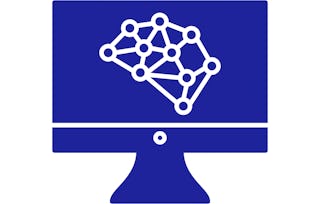This course is the second in a specialization for Machine Learning for Supply Chain Fundamentals. In this course, we explore all aspects of time series, especially for demand prediction. We'll start by gaining a foothold in the basic concepts surrounding time series, including stationarity, trend (drift), cyclicality, and seasonality. Then, we'll spend some time analyzing correlation methods in relation to time series (autocorrelation). In the 2nd half of the course, we'll focus on methods for demand prediction using time series, such as autoregressive models. Finally, we'll conclude with a project, predicting demand using ARIMA models in Python.

Demand Forecasting Using Time Series

Demand Forecasting Using Time Series
This course is part of Machine Learning for Supply Chains Specialization

Instructor: LearnQuest Network
4,156 already enrolled
Included with
39 reviews
Recommended experience
What you'll learn
Building ARIMA models in Python to make demand predictions
Developing the framework for more advanced neural netowrks (such as LSTMs) by understanding autocorrelation and autoregressive models.
Skills you'll gain
- Machine Learning
- Statistical Modeling
- Forecasting
- Supply Chain Management
- Pandas (Python Package)
- Predictive Modeling
- Matplotlib
- Trend Analysis
- Data Visualization
- Customer Demand Planning
- Regression Analysis
- Data Analysis
- Python Programming
- Time Series Analysis and Forecasting
- Correlation Analysis
- Skills section collapsed. Showing 10 of 15 skills.
Details to know

Add to your LinkedIn profile
5 assignments
See how employees at top companies are mastering in-demand skills

Build your subject-matter expertise
- Learn new concepts from industry experts
- Gain a foundational understanding of a subject or tool
- Develop job-relevant skills with hands-on projects
- Earn a shareable career certificate

There are 4 modules in this course
In this module, we'll get our feet wet with time series in Python. We'll start by getting familiar with where time series fits in to the machine learning landscape. Then, we'll learn about the main types of time series and their distinguishing factors, including period, frequency, and stationarity. After pausing to learn how to plot timeseries in Python, we'll explore the differences between seasonality and cyclicality.
What's included
7 videos3 readings2 assignments1 discussion prompt
In this module, we'll dive into the ideas behind autocorrelation and independence. We'll start by digging into the math of correlation and how it can be used to characterize the relationship between two variables. Next, we'll define its relationship to independence and explain where these ideas can be used. Finally, we'll combine correlation with time series attributes, such as trend, seasonality, and stationarity to derive autocorrelation. We'll go through both some of the theory behind autocorrelation, and how to code it in Python.
What's included
8 videos2 readings2 assignments1 discussion prompt
In this module, we'll start by reviewing some of the basic concepts behind linear regression. Then, we'll extend this knowledge to feed into lagged regression, an effective way to use regression techniques on time series. Once we have a solid foothold in basic and lagged regression, we'll explore modern methods such as ARIMA (autoregressive integrated moving average). All of this is building the framework for more advanced machine learning models such as LSTMs (long short-term memory network).
What's included
4 videos1 reading1 assignment1 programming assignment1 discussion prompt1 ungraded lab
In the final course project, we'll make demand predictions using ARIMA models.
What's included
1 programming assignment1 ungraded lab
Earn a career certificate
Add this credential to your LinkedIn profile, resume, or CV. Share it on social media and in your performance review.
Instructor

Offered by
Explore more from Machine Learning
Why people choose Coursera for their career

Felipe M.

Jennifer J.

Larry W.

Chaitanya A.
Learner reviews
- 5 stars
43.58%
- 4 stars
7.69%
- 3 stars
7.69%
- 2 stars
20.51%
- 1 star
20.51%
Showing 3 of 39
Reviewed on Sep 12, 2022
Great course to gain fundemantals of Time Series Analyses for Demand Forecasting..

Open new doors with Coursera Plus
Unlimited access to 10,000+ world-class courses, hands-on projects, and job-ready certificate programs - all included in your subscription
Advance your career with an online degree
Earn a degree from world-class universities - 100% online
Join over 3,400 global companies that choose Coursera for Business
Upskill your employees to excel in the digital economy
Frequently asked questions
To access the course materials, assignments and to earn a Certificate, you will need to purchase the Certificate experience when you enroll in a course. You can try a Free Trial instead, or apply for Financial Aid. The course may offer 'Full Course, No Certificate' instead. This option lets you see all course materials, submit required assessments, and get a final grade. This also means that you will not be able to purchase a Certificate experience.
When you enroll in the course, you get access to all of the courses in the Specialization, and you earn a certificate when you complete the work. Your electronic Certificate will be added to your Accomplishments page - from there, you can print your Certificate or add it to your LinkedIn profile.
Yes. In select learning programs, you can apply for financial aid or a scholarship if you can’t afford the enrollment fee. If fin aid or scholarship is available for your learning program selection, you’ll find a link to apply on the description page.
More questions
Financial aid available,




